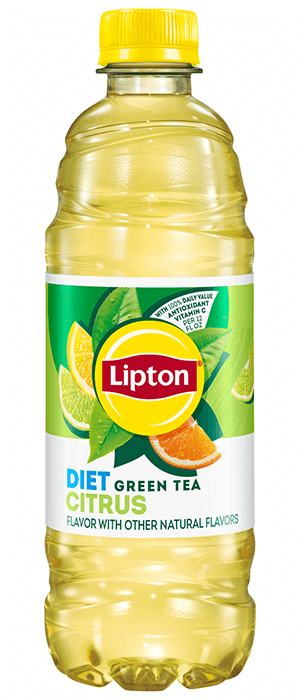Practical Ways to Optimize Marine Iguana Diet in 2025
Understanding Marine Iguana Feeding Habits
Marine iguanas, native to the Galapagos Islands, have fascinating feeding habits that contribute significantly to their survival. These reptiles primarily feed on algae found in the ocean, showcasing their specialized herbivore diet. Their unique adaptations allow them to thrive in a harsh marine environment, marked by the need to control their body temperature and efficiently metabolize the nutrients found in their food sources. This section explores the fundamental aspects of their feeding ecology and highlights the importance of understanding their dietary needs.
Types of Food Marine Iguanas Eat
The marine iguana diet mainly comprises various types of algae, which they graze upon during their foraging expeditions. Different seaweed species offer essential nutrients that are crucial for their growth and reproduction. For example, green and red algae are predominant in their diet, providing necessary vitamins and minerals. Additionally, the availability of these food sources varies seasonally, affecting the size and health of the local iguana populations. Investigating the quality and quantity of the food sources is vital for effective dietary management of these unique reptiles.
Marine Iguana Nutritional Needs
Understanding the nutritional requirements of marine iguanas is paramount in optimizing their diet. They require a balance of carbohydrates, proteins, and fats, primarily derived from algae. The metabolic needs of these reptiles change based on environmental conditions, such as water temperature and food availability. To better support their nutritional needs, it's crucial to monitor their grazing habits and adjust their diet accordingly. Conducting a thorough dietary analysis helps to ensure that marine iguanas receive the right nutrients essential for their survival and reproduction.
Feeding Schedule for Marine Iguanas
Establishing a proper feeding schedule for marine iguanas is essential for maintaining their health and well-being. Juvenile iguanas may require more frequent feeding compared to adults due to their growth demands. Adult iguanas should have a balanced feeding regimen, ensuring they receive adequate nutrients during their foraging sessions. Studies indicate that feeding efficiency can dictate the overall health of the population. An optimal schedule can enhance their foraging efforts and support their dietary needs throughout various seasonal changes.
Marine Iguana Adaptations to Their Environment
Marine iguanas have developed several unique adaptations that enable them to survive in their harsh marine environment. These adaptations include their ability to dive for food and their specialized digestive systems that allow them to process and extract nutrients from algae efficiently. Understanding these adaptations sheds light on how marine iguanas have evolved to optimize their feeding strategies while facing environmental challenges. Their interactions with the surrounding ecosystem also underline the ecological role they play in maintaining algal populations and nutrient cycling.
Impacts of Environmental Changes on Marine Iguana Diet
Building on the understanding of marine iguana feeding habits, it is crucial to examine the impact of climate change and habitat degradation on their dietary patterns. Changes in ocean temperatures and currents can affect the distribution and availability of algae, thereby influencing the dietary habits of marine iguanas. Researchers must explore how these environmental factors alter the marine iguana's access to food and overall health.
Galapagos Islands Iguanas and Climate Change
The Galapagos Islands face numerous challenges due to climate change, with potential implications on the diet of marine iguanas. Fluctuating ocean temperatures and increasing storms can disrupt their grazing areas and affect food availability. As a result, marine iguanas might need to adapt their foraging behavior to cope with these changes. Understanding these dynamics is essential for conservation efforts aimed at preserving marine iguana populations in their native habitat.
Marine Iguana Dietary Adaptations
Marine iguanas have developed several dietary adaptations over time. Their robust digestive systems are specially suited to process plant material, particularly algae. Moreover, they exhibit grazing habits that allow them to access various algae types at different depths in the ocean. Investigating these adaptations helps shed light on the complex relationships between iguanas and their environment, emphasizing the importance of supporting their dietary needs in the face of ecological changes.
Marine Iguana Foraging Behavior During Seasons
Seasonal variations significantly impact marine iguana foraging behavior. During the peak of the warm season, food is abundant, allowing iguanas to thrive. Conversely, in colder months, the scarcity of resources can lead to dietary stress. Understanding how these reptiles adjust their feeding strategies during changing seasons showcases their resilience and adaptability, which is vital for conservation strategies.
Responses to Food Scarcity
In response to food scarcity, marine iguanas exhibit notable changes in their foraging strategies. They may increase their foraging range or shift to alternative food sources when their preferred algae are unavailable. Documenting these behaviors can help researchers develop effective management plans and conservation strategies to ensure the survival of marine iguanas in fluctuating environmental conditions.
Strategies for Enhancing Marine Iguana Nutrition
With a firm foundation in understanding marine iguana diet and environmental influences, we can explore practical strategies to enhance their nutritional well-being. Implementing effective management strategies can help ensure a stable supply of food resources and maintain healthy populations of marine iguanas.
Monitoring Food Availability
Regular monitoring of food sources in marine iguana habitats is essential for optimizing their diet. Understanding patterns of algal growth and environmental changes can aid in predicting food availability, allowing for timely conservation efforts. Coordination with local conservation organizations can facilitate comprehensive diet assessments and habitat restoration initiatives, crucial for the long-term health of marine iguanas.
Enhancing Foraging Areas
Restoring and maintaining healthy foraging areas in marine iguana habitats can significantly improve their dietary access. Efforts should include managing invasive species that might compete with iguanas for food sources and promoting algal growth through sustainable practices. This restoration work also emphasizes the role of marine iguanas in the ecosystem, reinforcing their significance as key players in maintaining ecological balance.
Educating Communities on Conservation
Community education plays a vital role in the conservation of marine iguanas and their habitat. Engaging local populations in understanding the significance of protecting marine ecosystems can lead to collective efforts in preserving food sources. Collaboration with local stakeholders can foster a sense of ownership towards conservation initiatives, ensuring sustainable practices are adopted, benefiting both marine iguanas and their habitats.
Conclusion
In summary, the optimization of marine iguana diets in 2025 hinges on a multifaceted approach that considers their unique feeding habits, environmental influences, and conservation strategies. By understanding and addressing their dietary needs, we can enhance the health and survival of marine iguanas, ensuring their continued presence in the Galapagos Islands. Implementing effective monitoring, restoration, and educational initiatives will be crucial for sustaining healthy populations of these fascinating reptiles.
 example.com/image2.png
example.com/image2.png
 example.com/image3.png
```
example.com/image3.png
``` 